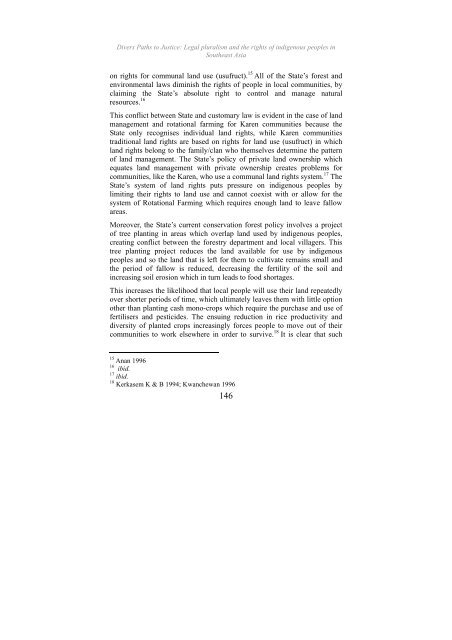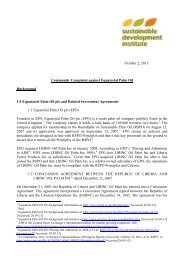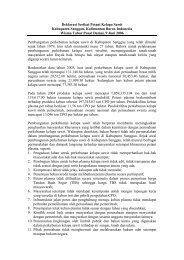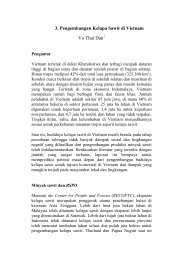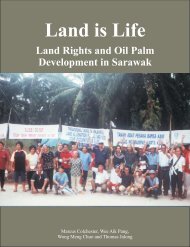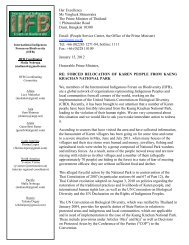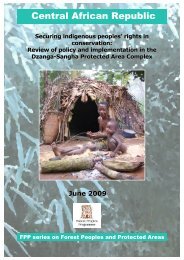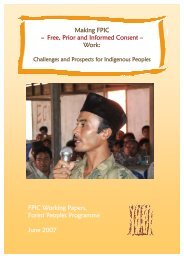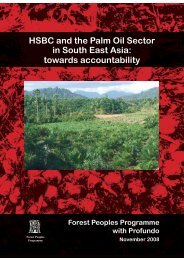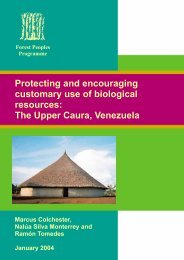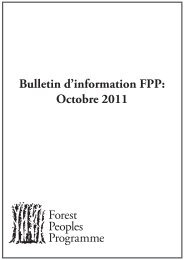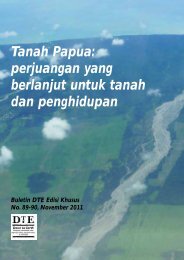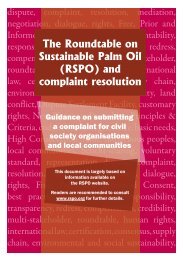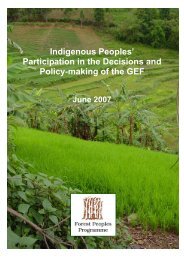Divers Paths to Justice - English - Forest Peoples Programme
Divers Paths to Justice - English - Forest Peoples Programme
Divers Paths to Justice - English - Forest Peoples Programme
You also want an ePaper? Increase the reach of your titles
YUMPU automatically turns print PDFs into web optimized ePapers that Google loves.
<strong>Divers</strong> <strong>Paths</strong> <strong>to</strong> <strong>Justice</strong>: Legal pluralism and the rights of indigenous peoples inSoutheast Asiaon rights for communal land use (usufruct). 15 All of the State’s forest andenvironmental laws diminish the rights of people in local communities, byclaiming the State’s absolute right <strong>to</strong> control and manage naturalresources. 16This conflict between State and cus<strong>to</strong>mary law is evident in the case of landmanagement and rotational farming for Karen communities because theState only recognises individual land rights, while Karen communitiestraditional land rights are based on rights for land use (usufruct) in whichland rights belong <strong>to</strong> the family/clan who themselves determine the patternof land management. The State’s policy of private land ownership whichequates land management with private ownership creates problems forcommunities, like the Karen, who use a communal land rights system. 17 TheState’s system of land rights puts pressure on indigenous peoples bylimiting their rights <strong>to</strong> land use and cannot coexist with or allow for thesystem of Rotational Farming which requires enough land <strong>to</strong> leave fallowareas.Moreover, the State’s current conservation forest policy involves a projec<strong>to</strong>f tree planting in areas which overlap land used by indigenous peoples,creating conflict between the forestry department and local villagers. Thistree planting project reduces the land available for use by indigenouspeoples and so the land that is left for them <strong>to</strong> cultivate remains small andthe period of fallow is reduced, decreasing the fertility of the soil andincreasing soil erosion which in turn leads <strong>to</strong> food shortages.This increases the likelihood that local people will use their land repeatedlyover shorter periods of time, which ultimately leaves them with little optionother than planting cash mono-crops which require the purchase and use offertilisers and pesticides. The ensuing reduction in rice productivity anddiversity of planted crops increasingly forces people <strong>to</strong> move out of theircommunities <strong>to</strong> work elsewhere in order <strong>to</strong> survive. 18 It is clear that such15 Anan 199616 ibid.17 ibid.18 Kerkasem K & B 1994; Kwanchewan 1996146


